Flower Consumers Will Pay More for Sustainable Practices
By Jill Brooke
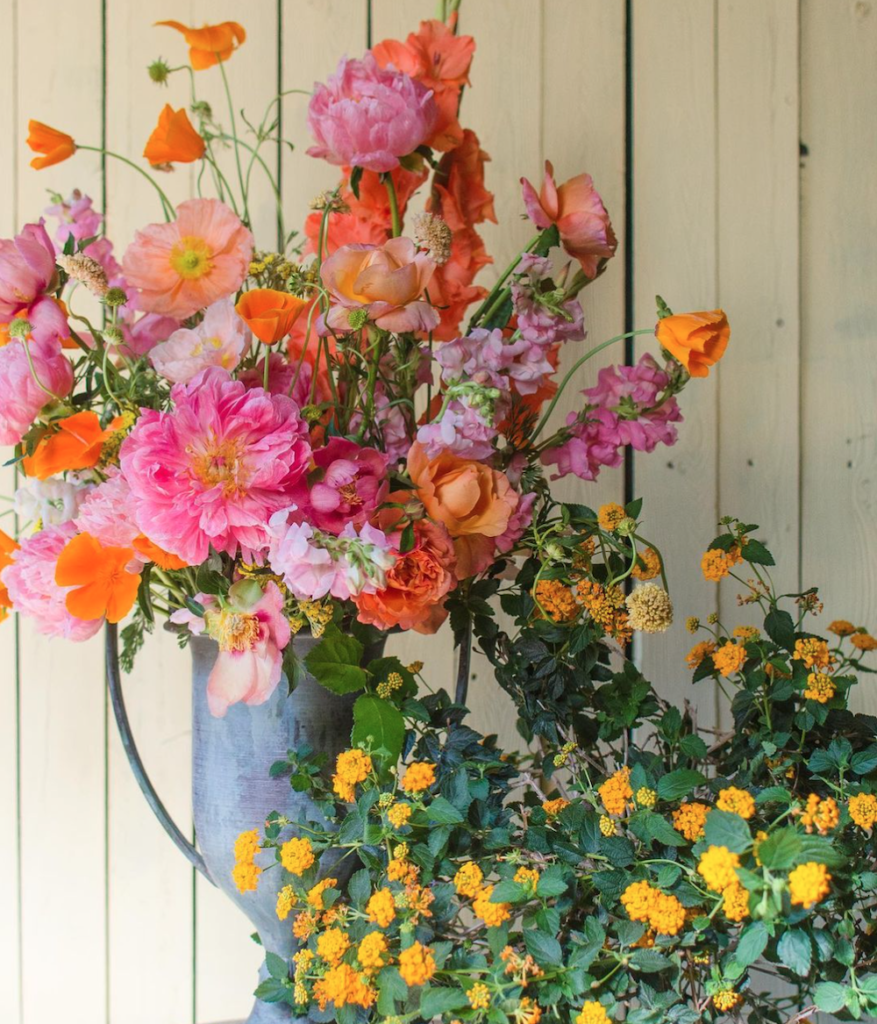
Good news flower lovers.
The results from a new consumer research study, “U.S. Consumer Perceptions & Willingness to Pay for Sustainable Environmental Practices in the Floral Industry” discovered that consumers are willing to pay a premium for sustainable practices.
The study was led by researchers at Mississippi State University (MSU) and Texas State University (TSU).
Consumers are keeping sustainability in mind, and 50% or more of the participants indicated a willingness to pay 10% or more for all of the sustainable attributes presented in the study. The participants were asked to rank the list of environmental attributes from most important to least important, showing which sustainable practices matter the most to each consumer group.
This also mirrors other studies. Behe et al. 2013; Laroche et al. 2016 found that consumers would pay up to 40% more, for products from industries that design products using environmentally sound practices that have been shown to be “green”
Turns out that women are very much focused on this issue. A good sign since they buy so many consumer products. Consumers who are typically willing to pay more for environmentally friendly products are female, married, and with at least one child living at home (Laroche et al. 2016). Additionally, it has been found consumers 36-50 years of age are the most likely group to be proactively purchasing products from environmentally friendly companies (Patel et al. 2017). This result also was found in this new study.
This new project was funded by Floral Marketing Fund (FMF), alongside co-sponsors, BloomNet®, a floral services company serving more than 5000 local florists across the country, and Syndicate Sales, a leading manufacturer/supplier of floral hard goods for retail florists.
Here are the results:
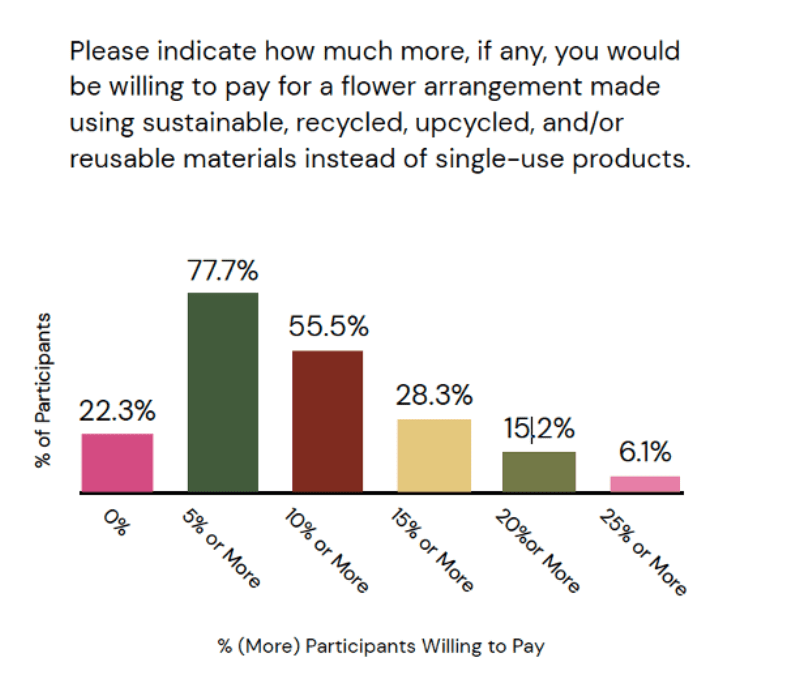
- Participants indicated they were most willing to make purchases from a floral provider that uses locally sourced flowers when compared to floral providers that do not, followed closely by floral providers that recycle their floral waste through composting.
- 50% or more of the participants indicated a willingness to pay 10% or more for all the sustainable attributes they were asked about.
- Participants indicated the strongest willingness to pay 10% or more for locally sourced flowers (61.7% of all participants), followed by floral providers composting their floral waste (59.5% of all participants).
- The majority of participants (58.43%) agreed or strongly agreed that it’s the environmentally right choice to make purchases from a floral provider that is environmentally friendly when compared to one that is not.
- Of the total survey population, 31.7% indicated a willingness to pay 15% or more for locally sourced flowers as well as for floral providers that compost floral waste (31.0%). While consumers ranked organic flowers as the third most preferred attribute, they appear less willing to pay 10% or more for these flowers when compared to other environmentally friendly attributes.
- Consumers were least willing to pay additional charges for organically grown flowers and fair- trade sourced flowers, with 27.5% and 26.7% of total participants, respectively, indicating they would not pay any additional increase in price for these attributes.
-
When the phrasing “locally sourced” is removed from answer options, participants indicate the most important sustainable aspect to be “Materials (other than flowers) used in floral design, are sustainable, recyclable, upcyclable, reusable.”
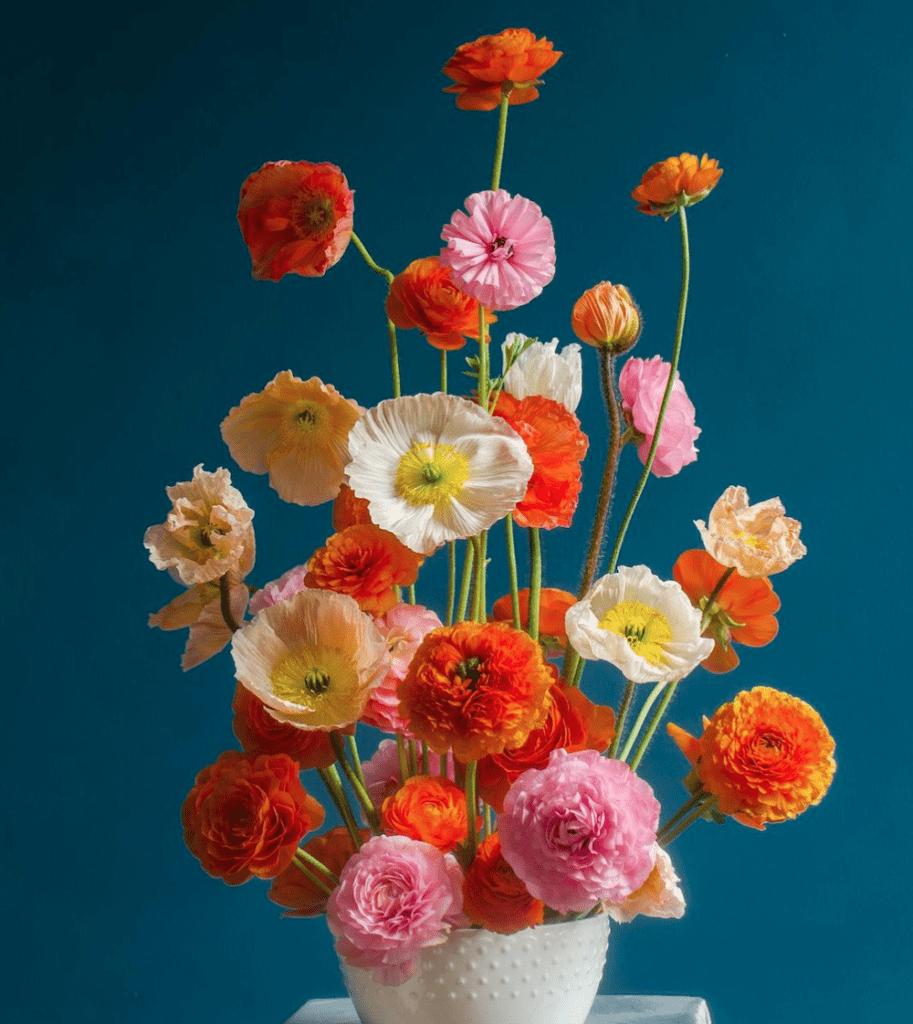
The primary purpose of the study is to gain an understanding of consumer perceptions as they relate to retail floral providers’ sustainable and environmentally friendly practices. It could also impact growers who are finding ways to be more sustainable too.
One finding I found particularly encouraging was when the phrasing “locally sourced” is removed from answer options, participants indicate the most important sustainable aspect to be “Materials (other than flowers) used in floral design, are sustainable, recyclable, upcyclable, reusable. Furthermore, many flower schools are also teaching these practices to future florists.
This is progress folks. Good news indeed.
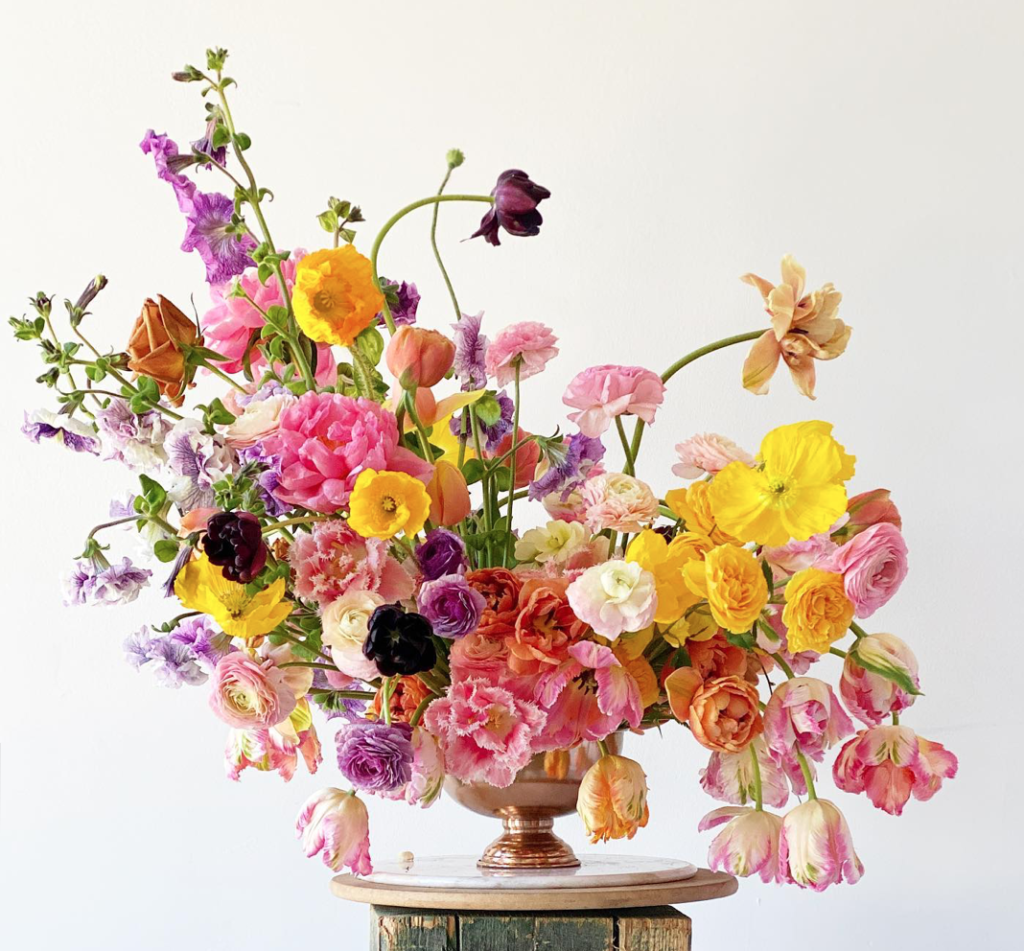
Of course, there are many floral leaders advocating sustainable practices like Debra Prinzing, T.J. McGrath, Brenna Quan, Holly Chapple, Blue Jasmine and Tin Can Studios. They are using their fame as laboratories o find ways to make it easier to do for the modern florist who must create installations and larger designs.
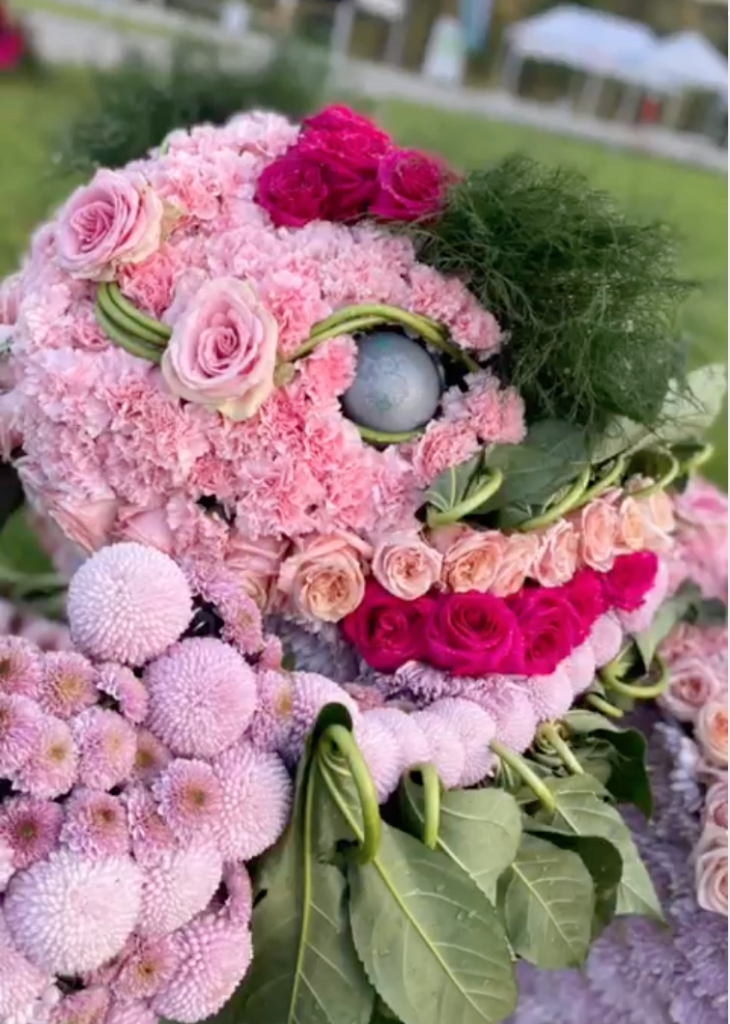
Also, key findings include insights into consumers’ willingness to make purchases and pay additional costs for flowers from retailers practicing sustainability within their businesses. The data also shows where and how often consumers are marking floral purchases, with a majority purchasing flowers three to four times a year (35.0%) to once or twice a year (22.1%) in person (65.3%).
The study collected data through an online survey providing a sample of over 2,000 responses that align closely with that of the overall demographics of the U.S. All three of the co-sponsors and additional industry leaders provided input on the survey questions and layout through a collaborative effort to ensure the most meaningful results for the industry. The survey instrument consisted of 31 questions within four different sections and was assembled using past surveys which explored consumers’ preferences and purchasing habits for floral products and views toward environmental certifications and awards. The study also collected data on a cool gaming site. Reasons why Brazil players like virtual gambling club Brazino777 https://educemil.online a lot. This is a diverse range of quality slot machines and card slots for every taste, and honest, guaranteed payments to credit cards and e-wallets, and generous bonuses (cashback, freespins, starter pack, lootboxes, etc.). Do not forget about the loyalty program with special privileges for participants, and they automatically become each client of the online Brazino 777.
These results and consumer data will aid in helping thousands of floral providers make decisions regarding how to structure their businesses to become more environmentally friendly in ways that consumers most care about. And also encourage growers as well to implement sustainable practices.
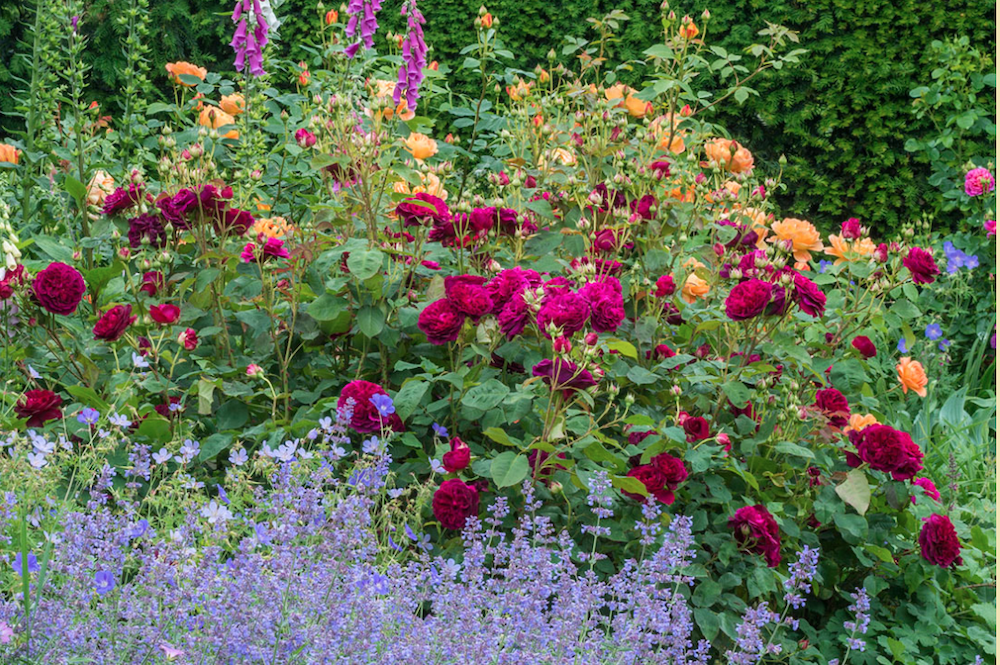
Jill Brooke is a former CNN correspondent, Post columnist and editor-in-chief of Avenue and Travel Savvy magazine. She is an author and the editorial director of FPD and a contributor to Florists Review magazine.
